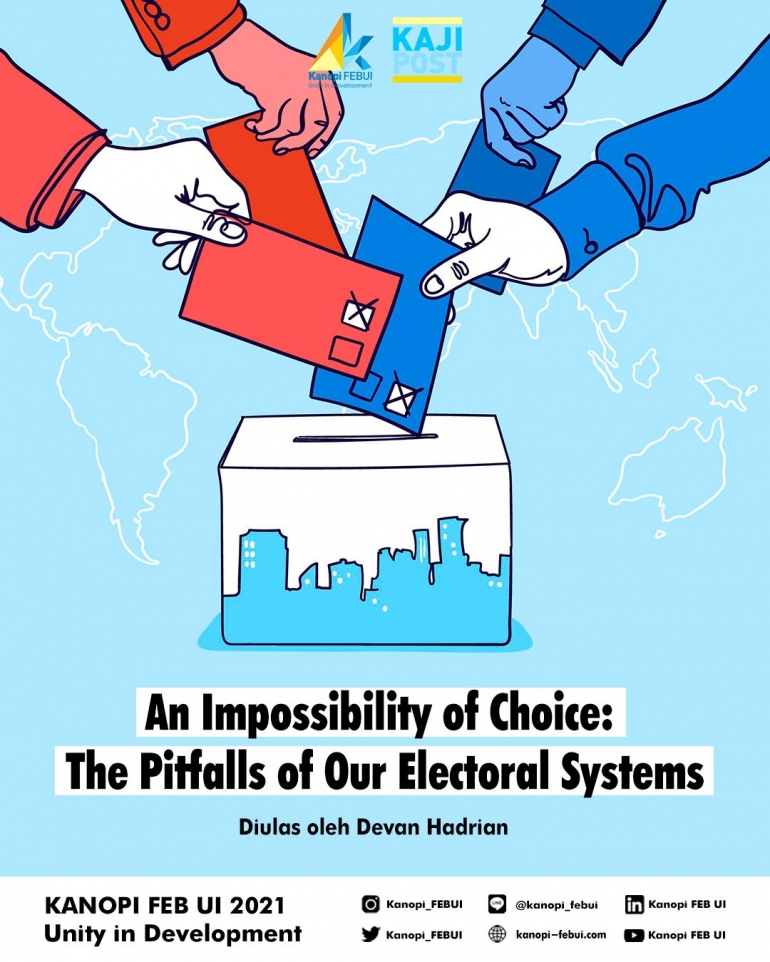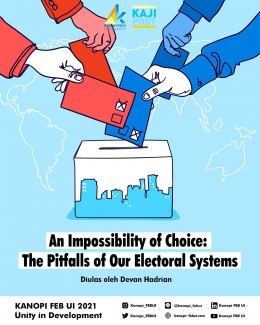Visiting the local polling place and casting our ballots into the box seems like a routine we do every four or five years for most of us living in the developed world. Oftentimes, we just arbitrarily vote for whichever candidate we like the most, and then not think about it too much---maybe until the results are then announced on TV. However, some claim that there are deep underlying flaws within the way we pick our leaders. Dissatisfaction towards executive power and election results is flourishing all over the world. Is there really something wrong about the way we vote and elect our leaders? And more importantly, is there anything we can do to correct it?
The Pragmatic Strategy of Voting
First of all, you might ask: Why is voting and elections a subject of study in economics? At its core, voting and elections deal with the behaviour and choices of people, the same essential concepts that are studied at large by microeconomics. Thus, the technical science of elections can fall under the field of behavioural economics and game theory.
Let us begin by addressing some of the more commonly used voting systems. Most elections oblige the participants to only vote for one candidate, and the candidate with the highest percentage of votes wins the election. This is often called plurality voting, which often takes the form of first-past-the-post elections where only one winner is selected. While regarded as effective, it presents some serious problems. Because there is only one winner, political minorities are usually underrepresented. It is also susceptible to gerrymandering or manipulation of election results by drawing legislative boundaries (ACE, 2021).
Thus, a handful of alternative systems have been devised to replace plurality voting. One such example is the instant runoff voting, otherwise known simply as the "alternative vote". Instead of picking a single candidate, this system allows voters to rank all the candidates from the most to least preferred. The candidate with the least amount of votes will then be eliminated, and their votes transferred to the remaining candidates.
This process continues until a candidate reaches the majority (>50%) of first-choice votes. On the other hand, there is also approval voting, in which voters simply approve or do not approve each candidate, and the candidate with the highest approval wins. Both of these methods are thought to provide results that are more middle-ground and acceptable by the general society, instead of only serving the plurality of voters.
In hindsight, all of these systems should work just fine if there are only two candidates in the election. However, a problem begins to arise when there are more than two candidates. In this situation, sometimes people are incentivised not to vote according to their own preferences, but instead to vote in a way such that the election results will be altered in their favour (Myatt, 2007).
Surprisingly, even with their stark conceptual differences, all three of the aforementioned voting systems are subject to the problem of strategic voting (Primer, 2020). Even with ranked-choice or approval systems, you can still strategically rank a candidate lower or disapprove of them against your preference. So, is there really no solution for this voting dilemma? Or, is there a reason that all of them are equally flawed?
A Paradox of Social Ordering
One of the most fascinating things about elections and voting is the fact that they are actually paradoxical. More precisely, the paradox was first observed by Nicolas de Condorcet, an 18th century French philosopher, and as such it was named the Condorcet voting paradox after him. To understand it, we must first acknowledge that voting is essentially an act of aggregating each voter's individual preferences to form a "social ordering", in which we rank the preference of society towards each candidate.








